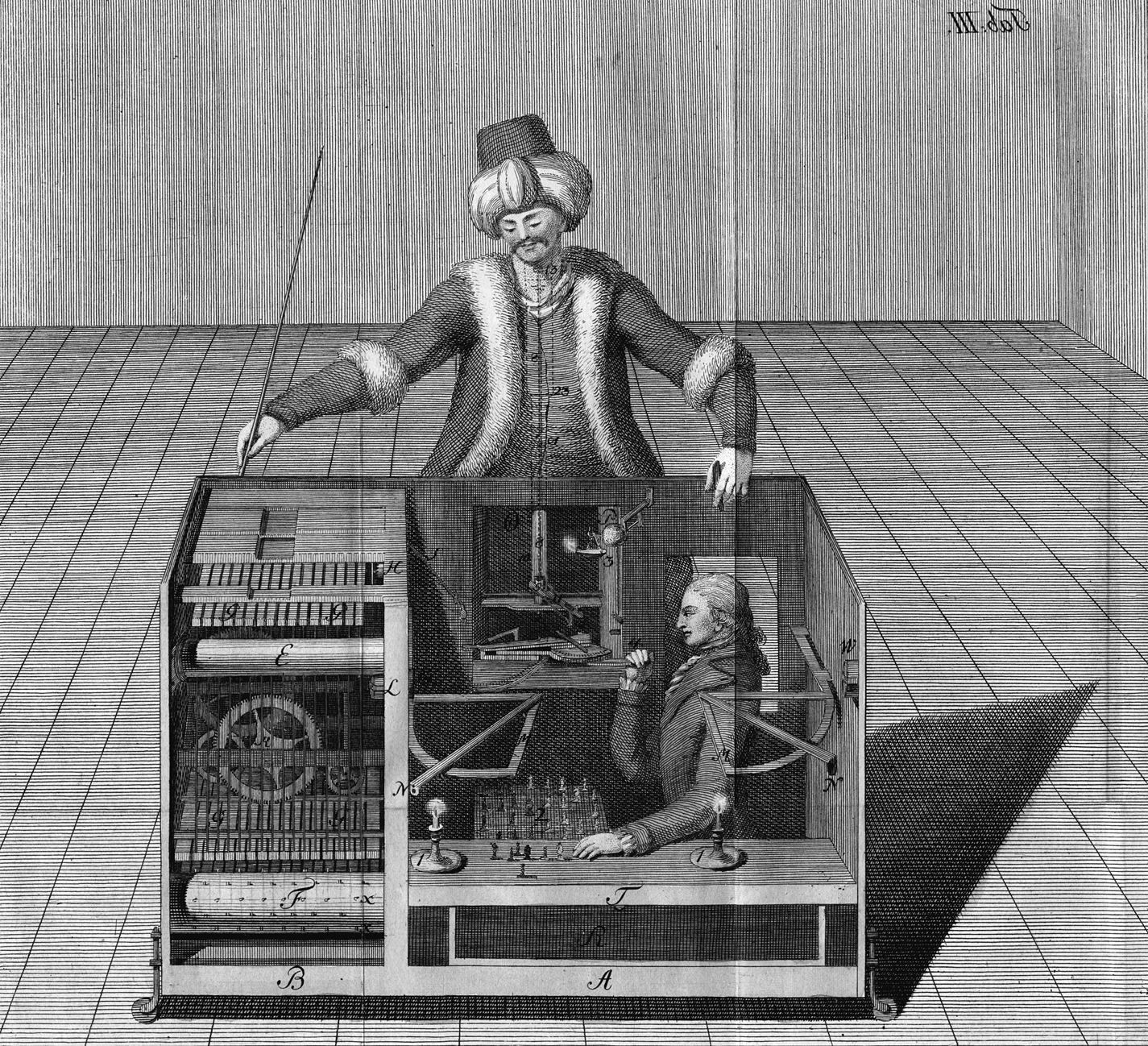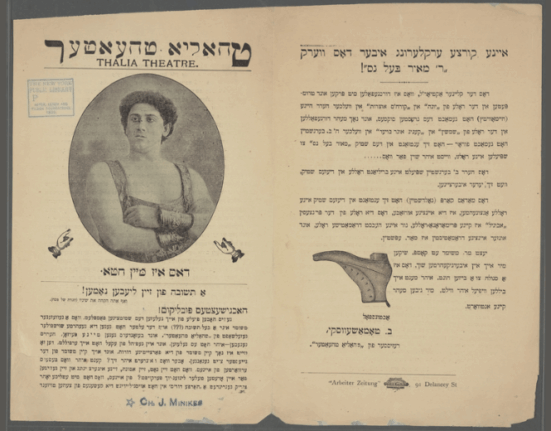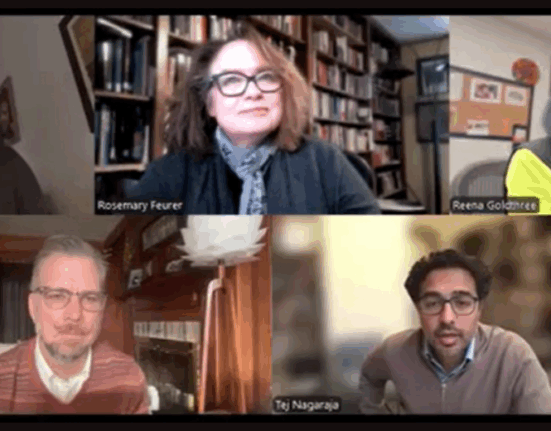The new issue of Labor: Studies in Working Class History is out, and as usual, we are able to release one of the essays from behind the paywall. We quickly decided that Tina Wei’s article about Amazon’s Mechanical Turk (MTurk), Amazon Web Services, Inc.’s crowdsourcing labor platform, was fascinating. The essay, Amazon Mechanical Turk: The Human Sciences’ Labor Problem is free for the next three months, until December 18, 2024.
Wei argues that the MTurk is a new “digital sweatshop.” In her essay she brings historical perspective from the fields of labor history and the history of science. This constructs Amazon’s seeming innovation to a longer history connected to scientific management and automation.
I had a brief interview with Wei in August about the essay. It’s available below as a youtube video.
In the talk, Wei discusses briefly the origination story for the label Mechanical Turk, and this illustration below is referenced in that discussion.

Wei writes: “MTurk drew its name from the famous eighteenth-century Mechanical Turk, a chess-playing automaton dressed as an Orientalized Turk, invented by Johann Wolfgang Ritter von Kempelen for the court of the Austrian empress Maria Theresa. The device toured the globe, defeating challengers like Benjamin Franklin, Frederick the Great, and Charles Babbage from 1770 to 1850. By design, it was a hoax. An illustration from a 1789 pamphlet showed that sitting inside the alleged automaton was an unseen human chess master, manipulating its moves like a puppeteer from within. The eighteenth-century Mechanical Turk captured intrigue because it fed burgeoning anxieties about industrialization’s runaway mechanical creations and long-standing Orientalist fascinations and fears about the liminal, disciplined, productive, and docile body of Muslim subjects.”
Like the human chess master manipulating pawns from within the belly of the eighteenth-century Mechanical Turk, anonymous online laborers animated AI as the ghost in the machine, powering “ghost work” in a “ghost economy,” where 8 percent of Americans have labored…..






